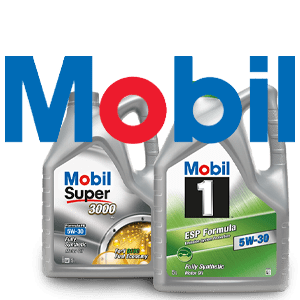Air Conditioning Service and Diagnostics
No matter how nice your car is, without a properly working Air Conditioning system, your driving experience just won’t feel right. Whether going on a long drive or running errands, a working air conditioning is essential to enjoying the most comfortable car possible. Taking care of your car’s A/C is a year-round service to make sure that it won’t fail or let you down when you need it most.

AIR CONDITIONING SERVICE DIAGNOSTICS AND REPAIR FOR ALL MODELS
Mitsiland can offer customers an air conditioning service, diagnostic and repair facility for the R134A and R1234YF gas types.
Mitsiland technicians are trained, certified and experienced at working on both air conditioning gas system types.
All models from 2013 onwards will have R1234YF gas in the air conditioning system.

AIR CONDITIONING SERVICE
- Check pressures
- Remove old refrigerant and weigh it to see how much may have lost been lost
- Conduct a nitrogen pressure check if no air conditioning gas is present in the system
- Carry out a bubble test to identify any leaks
- Report any faults to customer
- Conduct a genuine diagnostic test if required (additional cost item)
- Conduct a negative pressure vacuum to remove any trapped moisture within the air conditioning system
- Add UV dye
- Add Pag or PAO oil
- Add R134A or R1234YF gas to as per manufacturers specifications
- Test high- and low-pressure systems
- Test air temperature at the interior air vents
- Lubricate all schrader valve rubber o-rings
MITSILAND CAN CARRY OUT SERVICE, DIAGNOSTIC CHECKS AND REPAIRS ON BOTH THE R134A AND R1234YF GAS TYPE AIR CONDITIONING SYSTEMS.
PLEASE CALL US ON 0161 320 7788 TO ASK ABOUT THE OPTIONS AVAILABLE AND YOUR PERSONAL REQUIREMENTS.

LEAK DETECTION IN AIR CONDITIONING SYSTEMS
One of the most frequent causes of functional problems within a vehicle air conditioning system is refrigerant circuit leaks. These can lead to a gradual unnoticed drop in filling level and a reduction in performance or even complete failure of the air conditioning system.
It’s a fact that refrigerant gas loss due to leakage from rubber pipes and connections is around 10% per year. Any loss above 10% per year maybe due to a system leak. In this situation careful leak detection is a must before the vehicle is re-gassed.
The following components are leak tested:
- All connections and lines
- AC Compressor
- Condenser and evaporator
- Filter dryer
- Pressure switch
- Service connections
- Expansion valve
Three leak detection methods are recommended:
- Ultra violet dye and UV lamp
- Electronic leak detection
- Leak detection using a nitrogen set
- Leak detection with forming gas

LEAK DETECTION METHODS USED
- ULTRAVIOLET DYE & UV TORCH
The ultraviolet dye is added to the refrigerant as part of the lubrication oil. Any leaking gas/oil is made visible by the UV light, thus localizing the leak.
- ELECTRONIC LEAK DETECTION USING A LEAK DETECTOR
Indicates leaks via acoustic signal. It detects halogen gases and uncovers even the tiniest of leaks at points that are difficult to reach i.e. evaporator leaks.
- LEAK DETECTION USING A NITROGEN SET
The emptied air conditioning system is filled with nitrogen (maximum 10bar). The system is then monitored for a period of 5–10 minutes to see if the pressure remains constant. Normally the leak can be detected through a “hissing” noise. Leak detection agent is applied, and a foam will form at the point of any leaks. This method can only be used to detect larger leaks at easily accessible locations.
- LEAK DETECTION USING A FORMING GAS LEAK INDICATOR
This method is ideal for detecting small, hard to find leaks.
The empty air-conditioning system is filled with forming gas, a mixture of 95% nitrogen and 5% hydrogen. The components are checked for leaks using a special electronic leak indicator. Since hydrogen is lighter than air, the sensor is moved slowly over the suspected leak path i.e. electrical connections and components.

AIR CONDITIONING DECONTAMINATION “DEBUG”
If there are bad odours coming from your air vents when you turn on your A/C then your car could require an A/C decontamination treatment. Bacteria, fungus and mould build up within an A/C system overtime. This produces an unpleasant smell when the A/C is switched on.
Mitsiland offer an air conditioning decontamination service that kills the bacteria within the A/C system.
This process involves setting off a decontamination spray inside the vehicle cabin this is then sucked through the air vents and eliminates the unwanted bacteria leaving you’re A/C system clean and smelling fresh once more. An air conditioning system decontamination “debug” is available as an optional extra when you have your A/C system serviced.
PLEASE CALL US ON 0161 320 7788 TO ASK ABOUT THE OPTIONS AVAILABLE AND YOUR PERSONAL REQUIREMENTS.

AIR CONDITIONING INFORMATION
Nearly all vehicles manufactured today come with air conditioning or a climate control system as standard. Drivers & passengers experience the benefits of A/C in their car on a hot day but just like many components of your car, the A/C system also requires routine attention to ensure it continues to work efficiently.
Vehicle A/C systems lose refrigerant gas over time, even if it’s not used regularly, meaning that it will not work as efficiently as it should, while bacteria build up creates bad smells and possible illness. Therefore vehicle manufacturers recommend your A/C system is checked every two years.
The A/C system service is not part of a routine service, so if your vehicle is more than 2 years old it is due an A/C service so as to guarantee optimum performance and so as to ensure no gasses are leaking to atmosphere

DID YOU KNOW?
A/C is designed to be used in winter to efficiently demist your windscreen.
When you use your A/C to reduce cabin temperature this can help drowsiness when driving in hot conditions, and because the driver is more alert this may reduce stopping distances in an emergency.
TRUSTED BY









